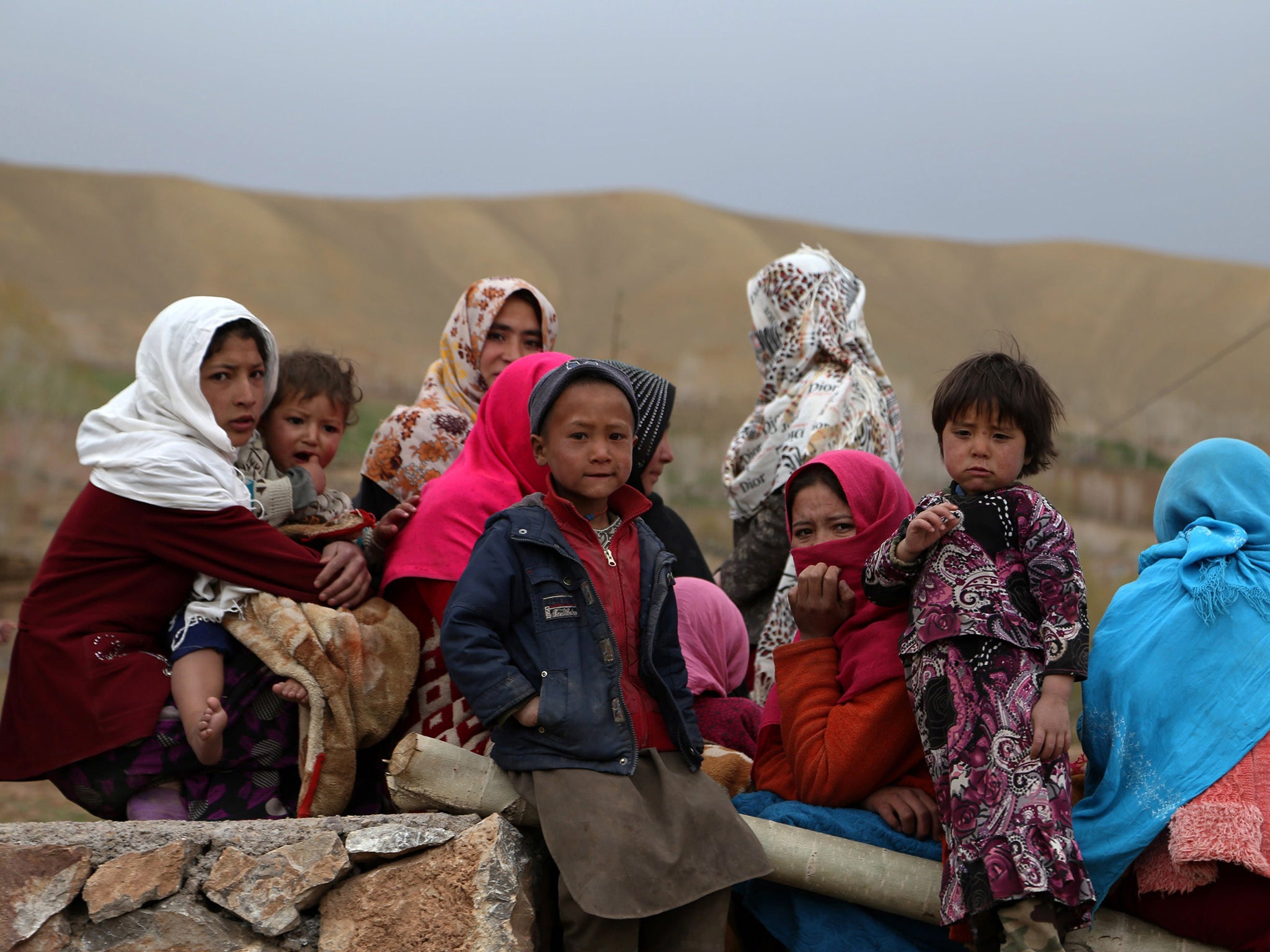Najiba Ahmadi: The quiet revolutionary working to end violence against Afghan women
Death threats can’t stop Ms Ahmadi educating people about their rights
Your support helps us to tell the story
From reproductive rights to climate change to Big Tech, The Independent is on the ground when the story is developing. Whether it's investigating the financials of Elon Musk's pro-Trump PAC or producing our latest documentary, 'The A Word', which shines a light on the American women fighting for reproductive rights, we know how important it is to parse out the facts from the messaging.
At such a critical moment in US history, we need reporters on the ground. Your donation allows us to keep sending journalists to speak to both sides of the story.
The Independent is trusted by Americans across the entire political spectrum. And unlike many other quality news outlets, we choose not to lock Americans out of our reporting and analysis with paywalls. We believe quality journalism should be available to everyone, paid for by those who can afford it.
Your support makes all the difference.Najiba Ahmadi is quiet and unassuming – mild-mannered even. She is far from your typical revolutionary. Last week, Ms Ahmadi was among the suited government officials gathered in Britain to discuss Afghanistan’s future.
For the past five years she has been working to improve the lives of women and girls. The 32-year-old runs a shelter in Bamyan province where she offers legal advice.
“In Afghanistan women aren’t viewed as human beings or equal partners,” she tells The Independent. “But the work that I’m doing with women is helping them understand their rights.”
Ms Ahmadi became one of the country’s first female paralegals in 2009 after participating in an initiative launched by the anti-poverty charity ActionAid that aims to combat the rising tide of violence against women in Afghanistan by educating them on their rights and providing legal advice.
The refuge is a safe haven for women and girls, and provides practical support, counselling and legal advice. It even offers literacy classes and vocational training in areas such as needlework and handicrafts.
Ms Ahmadi is well-known in the community now. “Most of the women have my contact number. If they have a problem they just call me and I advise them,” she says.
“Whenever I meet women, I talk to them about their rights. It has become normal for me to speak with women wherever I go and give them advice. It is nice to know I’m helping.”
But community leaders have attempted to smear the campaigner by questioning her “honour”, she says, and malicious rumours have been spread claiming the shelter is in fact a brothel and that she has sold women into slavery.
“In Afghanistan women who speak out for rights are stigmatised,” Ms Ahmadi says.
Perhaps unsurprisingly, there is an exceptionally high turnover of staff at the shelter. “Some women leave after a week, some of them, a month. The maximum time anyone has stayed there is a year because they can’t withstand the threats,” she says.

At one point, every member of staff tendered their resignation at once. Devastated, Ms Ahmadi considered following suit but her husband – a proud advocate of her work – urged her not to give up.
“He said, ‘If you resign, all the people who have spread rumours about you will believe they have been proved right. Don’t resign – stand and fight and prove them wrong’.”
A visit from Habiba Sarobi, a former Governor of Bamyan and the first Afghan woman to reach that position in any province of the country, helped boost the team’s morale.
“She said: ‘You are champions... if you don’t do this work who else do you think will do it?’” Ms Ahmadi recalls.
Nevertheless, she has been subjected to a sustained campaign of intimidation and a string of death threats – and her family has been targeted too. Recently, Ms Ahmadi says, she was forced to send her three young children away to live with their grandparents for six months after she received an anonymous phone call warning her that they would “bear the consequences” of her actions.
But she refuses to bow to pressure. Ms Ahmadi says that, for her, intimidation, slurs and death threats “have become routine”.
She does, however, fear that the withdrawal of international troops from Afghanistan will lead to a spike in violent crimes against women, and is appealing to policymakers to earmark funds to help protect them.
ActionAid has thrown its weight behind her cause and is calling for at least £4m of the £178m of aid that the UK gives to Afghanistan each year to be spent on tackling violence against women and girls.
Join our commenting forum
Join thought-provoking conversations, follow other Independent readers and see their replies
Comments